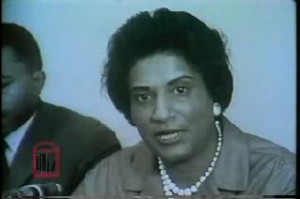
Today marks the fiftieth anniversary of the Civil Rights Act of 1964. The act was signed into law by President Lyndon Johnson just a few hours after House approval on July 2, 1964. The act outlawed segregation in businesses such as theaters, restaurants, and hotels. It also banned discriminatory practices in employment and ended segregation in public places such as swimming pools, libraries, and public schools. Spend some time looking through the numerous educator resources and materials from archival collections that are available from the Civil Rights Digital Library at http://crdl.usg.edu/events/civil_rights_act_1964/ .

